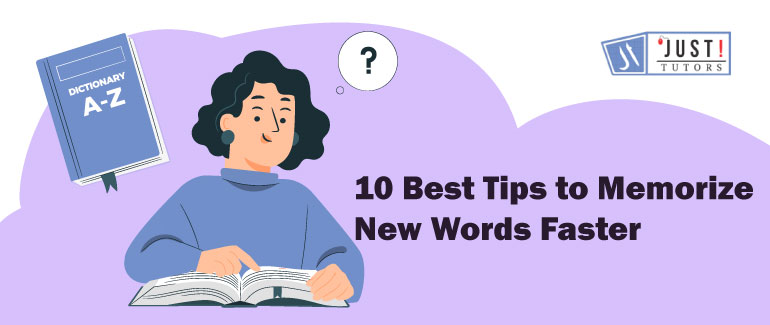Vocabulary is essential to reading comprehension and plays an important part in the reading process. The majority of words are learned indirectly by children through their daily interactions with speech and written language.
The words we need to know in order to communicate successfully are referred to as vocabulary. Listening, speaking, reading, and writing are four sorts of language that educators commonly consider.
The words we need to comprehend what we hear are referred to as listening vocabulary. The words we use when we speak make up our spoken vocabulary. Reading vocabulary refers to the words we require to grasp what we’re reading. The words we employ in writing make up our writing vocabulary.
Vocabulary is vital when it comes to learning to read. Beginners must apply the words they hear orally to make sense of the words they see inprint. Children who hear more words spoken at home learn more words and have a larger vocabulary when they start school. Having a larger vocabulary pays out in spades as a child progresses through school.
The majority of the vocabulary is learnt indirectly, but certain vocabulary must be taught explicitly, according to scientific studies on vocabulary training. As a result, research suggests combining indirect and direct tactics.
The 10 Best Tips for Memorizing New Words Faster
Look no further if you need some pointers on how to recall new words. We’ve got your back!
1. Use of mnemonics
Mnemonic devices, such as associations and acronyms, are mental shortcuts that help you remember complex phrases. Here are some examples:
For ‘Arithmetic,’ utilise the line “A rodent in the house may enjoy the ice cream.”
For ‘Because,’ use the line “Big elephants can always understand small elephants.”
For ‘Geography,’ the sentence “George’s elder old grandpa rode a piggy home yesterday” can be used.
2. Use of flashcards
Learning new words by making flashcards is a popular method. Place your flashcards in a prominent location where you’ll see them frequently and read them on a daily basis.
3. Webs of word associations
A word association web is a visual aid that aids in the recall of words by linking them with others. Draw lines outward from the centre of a sheet of paper, linking the word you wish to remember to other words you identify with it.
4. Sentences
Making sentences allows us to better grasp the words we are learning, which is the most effective approach to remember them.
5. No translation
It is preferable to try to define a word in the language one is learning rather than translating it into one’s native tongue in order to retain it.
6. Make a drawing
We will remember each new word better if we draw a picture of it.
7. Do it again
Repeat the terms you’ve learned several times. Return to them after your class and conduct some vocabulary drills until you have no trouble remembering them.
It’s a good idea to keep a separate notebook for correctly copying down words when you first learn them and another for polishing and revisiting them. This is important to maintain your reading notepad clean, especially when you practise and make mistakes.
8. Create a mental image
It’s easier to remember new terms if you have them printed out in front of you.
9. Listen to music while studying
When it comes to language learning, it has been proposed that specific sounds and music can aid recall.
10. Games to improve vocabulary
Use language learning apps that allow you to use freshly learnt vocabulary in word puzzles and games such as crosswords.
Learning vocabulary is fun with these activities
Are flashcards not your thing? Don’t worry! Here are three enjoyable vocabulary-building activities for you:
1. Get into comics
The plot of a comic book is easier to follow than that of a novel since it has a lot of straightforward dialogue. Here are a few examples of comic books that can help you learn new words:
Diary of a Wimpy Kid is a series of illustrated novels about a middle school boy named Greg and his attempts to become popular.
Calvin and Hobbes is an American newspaper comic strip about Calvin, a six-year-old kid with a lot of imagination, and Hobbes, his pet tiger.
Garfield is a comic strip depicting the day-to-day activities of a lazy cat who enjoys lasagne.
Put words together in pairs
Find a synonym and the antonym for every new word you learn. Here are some instances of word pairs:
Pompous. Arrogant is a synonym for pompous. Humble is the antonym of pompous.
Courageous. Brave is a synonym for courage. Cowardly is the antonym.
Noisy. Loud is a synonym for noisy. Quiet is its antonym.
Watch your favourite TV shows with subtitles
When you watch reruns of your favourite episodes with subtitles in the language you’re learning, you’ll readily pick up new terminology.
You have two options for finding shows with subtitles. Alternatively, go to websites that allow you to download subtitles for your favourite movies and shows, such as Netflix, Amazon Prime, and Hulu, which all provide subtitled shows with caption/subtitle choices.
With languages, you may feel at ease almost anywhere!
Foreign language proficiency is a valuable ability nowadays, and it is claimed that learning a second language improves our cognitive capacities while also enhancing our professional possibilities and making us more well-rounded individuals.

